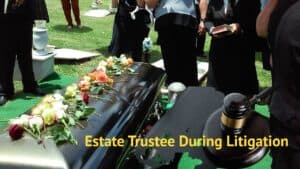wills and executors
Wills and Executors: Introduction
Losing a parent hurts deeply. During this difficult time, families should unite to honour their loved one and handle their affairs. But what happens when the person named in the will to manage everything – the executor – isn’t doing their job properly?
If you’re worried about how an executor is handling your parent’s will, you’re not alone. While your parent chose this person in their will, that appointment isn’t permanent, especially if the executor is causing harm to beneficiaries like you.
Wills and Executors Real-Life Example: When Executors Go Wrong
A recent court case, Spellman v. Spellman, 2025 ONSC 1187 (CanLII), shows just how serious these situations can become. In this case, a brother named as executor mishandled his father’s estate so badly that his sister had to take him to court. This Ontario case highlights the problems that can arise with wills and executors, and the legal remedies available.
In this comprehensive guide, we’ll explore everything you need to know about wills and executors in Ontario, including what happens when things go wrong.
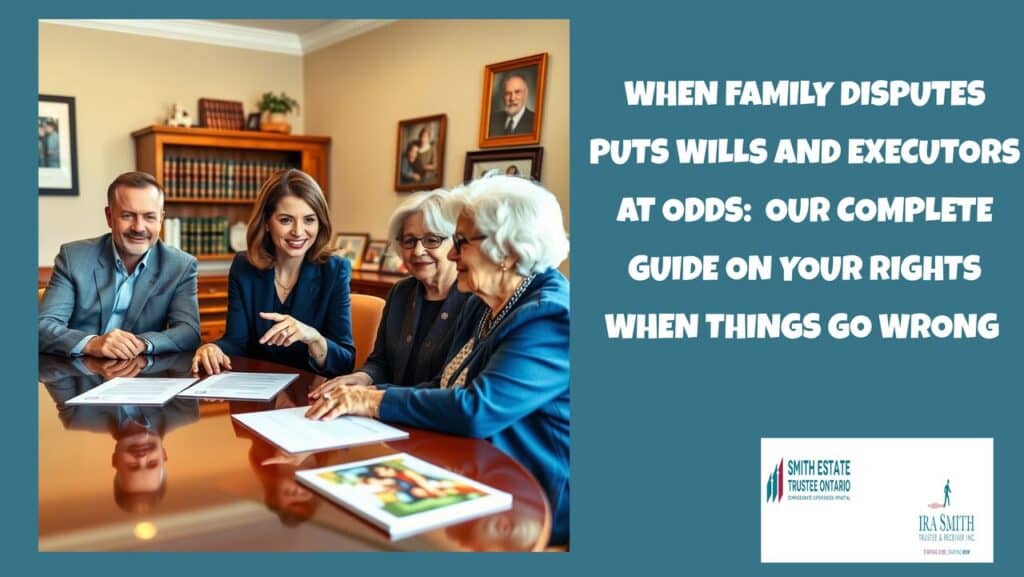
Understanding Wills and Executors
Definition and Purpose
A will is a legal document that outlines how you want your property distributed after death. In Ontario, wills are governed by the Succession Law Reform Act, R.S.O. 1990, c. S.26. The primary purpose of a will is to ensure your wishes are followed, to name an executor to manage your estate, and to potentially appoint guardians for minor children.
Ontario law recognizes three types of wills: formal wills (typed and signed with witnesses), holograph wills (entirely handwritten and signed by the testator), and international wills (for those with assets in multiple countries). Each must meet specific requirements to be valid under Ontario law.
Key Elements of a Will
For a will to be legally valid in Ontario, it must contain certain elements:
- Testamentary intent – clear indication that this document is intended to be your will
- Testator information – your full name and declaration that this is your last will
- Revocation clause – cancelling any previous wills
- Executor appointment – naming the person(s) who will administer your estate
- Distribution of assets – specific instructions for who gets what
- Signatures – yours and those of two witnesses (except for holograph wills)
Ontario law requires that the testator (the person making the will) be at least 18 years old and of “sound mind,” meaning they understand what a will does, what assets they own, who their potential beneficiaries are, and how these elements connect in the will.
Common Misconceptions
Many Ontario residents hold misconceptions about wills and executors that can lead to problems:
Misconception #1: Verbal promises count as much as written instructions. In Ontario, verbal promises about inheritance hold no legal weight against written instructions in a valid will. Always ensure important wishes are properly documented.
Misconception #2: The oldest child automatically becomes the executor. There is no legal requirement that the oldest child (or any family member) must be the executor. This is entirely the testator’s choice.
Misconception #3: Executors can do whatever they want. Executors in Ontario have a fiduciary duty to act in the best interests of all beneficiaries and follow the will’s instructions. They can be held personally liable for breaches of this duty.
Misconception #4: A will cannot be challenged. Ontario’s Succession Law Reform Act allows wills to be challenged on several grounds, including improper execution, lack of testamentary capacity, undue influence, or fraud.
Wills and Executors: Role of an Executor
Definition and Responsibilities
An executor (also called an estate trustee in Ontario) is the person named in a will to administer the deceased’s estate. Their legal duties under Ontario law include:
- Locating the original will and filing it with the Superior Court of Justice for probate
- Arranging the funeral according to the will’s instructions
- Notify all beneficiaries named in the will
- Creating an inventory of all assets and liabilities
- Protecting the estate assets until distribution
- Filing final tax returns and obtaining tax clearance from the Canada Revenue Agency
- Distributing the assets according to the will’s instructions
- Providing a detailed accounting of all financial transactions to beneficiaries
The Ontario Trustee Act, R.S.O. 1990, c. T.23 sets out the standard of care required: executors must exercise the care, skill, diligence and judgment that a prudent investor would exercise in making investments.
Steps to Take After Death
When serving as an executor in Ontario, these are the immediate steps to take after someone dies:
- Secure the original will – You’ll need this to apply for the Certificate of Appointment of Estate Trustee (probate).
- Register the death – Obtain a death certificate from the funeral director, which you’ll need for multiple purposes.
- Notify relevant parties – This includes Service Canada (for CPP/OAS benefits), banks, insurance companies, and the Canada Revenue Agency.
- Apply for probate – In Ontario, this is called a Certificate of Appointment of Estate Trustee. This application goes to the Superior Court of Justice and includes filing an Estate Information Return with the Ministry of Finance within 180 days.
- Place a Notice to Creditors – This protects the Estate Trustee from personal liability for unknown debts. Historically, it was published in local newspapers. More recently, advertising for creditors on the NoticeConnect online portal has replaced publishing a notice in the local newspaper.
The Ontario Estate Administration Tax (EAT), formerly called probate fees, must be paid based on the estate’s value. Current rates are $15 per $1,000 for estates over $50,000, with the first $50,000 taxed at $250.
Managing and Protecting Estate Assets
Ontario law places strict requirements on executors regarding estate assets:
- Estate account – Open a separate estate bank account for all financial transactions
- Asset security – Ensure valuable property is secured, insured, and maintained
- Prudent investments – Follow the “prudent investor rule” for any investments
- Record keeping – Maintain detailed records of all transactions
- Asset valuation – Obtain professional appraisals of significant assets
In the Spellman case, the executor failed to properly manage and account for estate assets, which directly violated Ontario’s Trustee Act. This resulted in significant financial penalties against the executor.

Wills and Executors: Choosing an Executor
Personal vs. Professional Executor
Ontario law allows you to name either personal connections (family/friends) or professionals (lawyers/trust companies/Smith Estate Trustee Ontario) as executors:
Personal Executors:
- Cost-effective (may serve without compensation)
- Familiar with family dynamics
- May have personal knowledge of your wishes
Professional Executors:
- Experienced in estate administration
- Objective third party in family conflicts
- Knowledge of tax and legal requirements
- Continuity (won’t die or become incapacitated)
The complexity of your estate, family relationships, and the competence of potential personal executors should guide this decision.
Factors to Consider
When choosing an executor for your Ontario will, consider:
- Financial capability – The executor should understand basic financial matters and be capable of working with professionals when needed.
- Trustworthiness – Ontario law holds executors to a high fiduciary standard; choose someone with impeccable integrity.
- Availability – The role typically requires 1-2 years of active involvement.
- Location – While non-residents can serve as executors in Ontario, they face additional requirements and may need to post a bond.
- Personal qualities – Organization, attention to detail, and communication skills are essential.
- Age and health – Choose someone likely to outlive you and be physically and mentally capable of serving.
Ontario allows for alternate executors to be named in case your first choice is unable or unwilling to serve.
Implications of Multiple Executors
Ontario wills can name multiple executors who must act jointly unless the will specifies otherwise. Potential benefits include:
- Shared workload and responsibility
- Complementary skills and knowledge
- Checks and balances in decision-making
However, this arrangement can also create challenges:
- Decision gridlock if executors disagree
- Increased administration time and costs
- Communication difficulties
If you choose multiple executors in Ontario, the will should specify whether they must act jointly (all decisions require unanimous agreement) or severally (each can act independently).
Wills and Executors: Executor Compensation
Standard Practices
In Ontario, executors are entitled to “fair and reasonable compensation” for their services, even if the will doesn’t mention compensation. The Trustee Act doesn’t specify exact amounts, but Ontario courts have established guidelines:
- 2.5% of capital receipts
- 2.5% of capital disbursements
- 2.5% of revenue receipts
- 2.5% of revenue disbursements
- An annual care and management fee of 0.4% of the average gross value
The total typically ranges from 3-5% of the estate value, depending on complexity, time involved, results achieved, and executor expertise.
How Compensation is Determined
Ontario courts consider these factors when assessing appropriate executor compensation:
- Size of the estate – Larger estates may justify higher percentage fees
- Time spent – Detailed time records strengthen compensation claims
- Complexity – Business assets, litigation, or tax complications may justify higher fees
- Skill and expertise required and applied
- Success in administering the estate efficiently
Executors should keep detailed records of their activities and time spent, as this documentation is critical if compensation is challenged.
Handling Disputes over Fees
Disputes over executor compensation are common in Ontario. If beneficiaries object to proposed fees, these are the typical steps:
- The executor “passes their accounts” by filing a formal accounting with the court
- Beneficiaries can file objections to specific items or overall compensation
- A hearing is held before a judge, who makes the final determination
In contentious cases like Spellman v. Spellman, the court can even deny compensation entirely if the executor has breached their fiduciary duties or mismanaged the estate.

Legal Considerations for Wills and Executors
Jurisdictional Differences
While this guide focuses on Ontario law, executors should be aware that different provinces have varying rules.
- Ontario’s Estate Administration Tax is higher than some provinces but allows for multiple will strategies to reduce taxes
- Quebec uses civil law rather than common law, with notarial wills being the norm
- British Columbia has specific rules regarding will variation claims
- Alberta has different probate fee structures
If the deceased owned property in multiple provinces or countries, executors may need to apply for probate in each jurisdiction, significantly complicating the process.
Executors and Beneficiaries
Ontario law creates a special relationship between executors and beneficiaries:
- Fiduciary duty – Executors must put beneficiaries’ interests first
- Duty to inform – Beneficiaries have a right to basic information about the estate
- Impartiality – Executors must treat all beneficiaries fairly
- No self-dealing – Executors cannot purchase estate assets without court approval
When executors are also beneficiaries (common in family situations), they must be especially careful to separate their interests from their executor duties. The Spellman case demonstrates how severely Ontario courts view executor self-dealing.
Corporate Trustees as Executors
Ontario allows trust companies to serve as executors. Advantages include:
- Professional expertise in estate administration
- Continuity (no risk of death or incapacity)
- Objectivity in family disagreements
- Infrastructure for record-keeping and reporting
However, corporate executors charge professional fees (typically 3-5% of the estate) and may lack personal knowledge of family dynamics. They’re usually most appropriate for complex or high-value estates or when no suitable individual is available.
Smith Estate Trustee Ontario acts as an independent court-appointed estate trustee. We act impartially as an officer of the court, while being sensitive to the family dynamics.
Wills and Executors: Will Disputes and Resolutions
Common Causes for Disputes
Ontario courts frequently see these common triggers for will disputes:
- Validity challenges – Claims that the will wasn’t properly executed, the testator lacked capacity, or was unduly influenced
- Executor misconduct – Similar to the Spellman case, where the executor breached their fiduciary duties
- Interpretation issues – Unclear or ambiguous language in the will
- Dependent support claims – Under Ontario’s Succession Law Reform Act, dependents can claim adequate support if the will doesn’t provide for them
- Family law claims – Surviving spouses have special rights under the Family Law Act, R.S.O. 1990, c. F.3
The Ontario Limitations Act, 2002, S.O. 2002, c. 24, Sched. B generally provides a two-year window for most estate-related claims.
Legal Recourse and Mediation
When disputes arise over wills and executors in Ontario, these resolution options exist:
- Negotiation – Often the first step, with beneficiaries and executors attempting to resolve issues directly
- Mediation – A neutral third party helps facilitate a voluntary resolution (mandatory in some Ontario jurisdictions before court proceedings)
- Court applications – Formal proceedings where a judge makes a binding decision
- Passing of accounts – A specific court process where executors present a detailed accounting for approval
Ontario courts have broad powers to:
- Remove and replace problematic executors
- Order the return of misappropriated assets
- Interpret ambiguous will provisions
- Award compensation for damages caused by executor misconduct

Wills and Executors: When No Executor is Named
Appointment of Administrator
If someone dies without naming an executor in their will (or dies without a will), the Ontario Superior Court of Justice can appoint an administrator. The Estates Act establishes this priority order:
- Spouse
- Children
- Grandchildren
- Parents
- Siblings
- Next of kin
The appointed administrator has essentially the same duties and powers as an executor, but typically must post a bond unless the court waives this requirement.
Legal Process and Challenges
The process for appointing an administrator in Ontario involves:
- Filing an Application for Certificate of Appointment of Estate Trustee Without a Will (if no will exists) or With a Will (if there’s a will but no named executor)
- Providing notice to all interested parties
- Paying the required Estate Administration Tax
- Posting a bond, in many cases
Challenges in administrator appointments often include:
- Competing applications from multiple family members
- Disputes over who is best suited to serve
- Difficulties in obtaining the required bond
- Family conflicts that make administration difficult
Smith Estate Trustee Ontario acts many times as a court-appointed administrator where a person dies intestate (without a will).
Wills and Executors: Renouncing Executorship
Reasons for Renunciation
Ontario law allows named executors to decline the role, provided they haven’t “intermeddled” in the estate. Common reasons include:
- Health issues – Physical or mental health challenges that make the role difficult
- Distance – Living far from where the estate needs to be administered
- Time constraints – Inability to devote necessary time to executor duties
- Complexity – Feeling unequipped to handle a complex estate
- Family conflict – Wanting to avoid being caught in family disputes
In the Spellman case, Dawn initially renounced her right to be an administrator, showing that this is sometimes done to facilitate the process—though in this case, it unfortunately led to problems.
To properly renounce in Ontario, the executor must file a Renunciation of Prior Right to a Certificate of Appointment of Estate Trustee (Form 74.18) with the court before taking any actions that would constitute accepting the role.
Smith Estate Trustee Ontario also acts in situations where the named executor(s) renounces their role.

Frequently Asked Questions About Wills and Executors in Ontario
What is a will in Ontario, and what key elements must it contain to be legally valid?
A will in Ontario is a legal document that outlines how you want your property distributed after death. Under the Succession Law Reform Act, a valid will must include:
- Clear indication that it’s intended to be your will (testamentary intent)
- Your full name and a declaration that this is your last will
- A statement cancelling any previous wills (revocation clause)
- Appointment of an executor to manage your estate
- Instructions for distributing your assets
- Your signature and those of two witnesses (except for holograph wills)
To create a valid will, you must be at least 18 years old and of “sound mind,” meaning you understand what a will does, what you own, who your potential beneficiaries are, and how these connect in your will.
What are some common misconceptions about wills and executors in Ontario?
Several misunderstandings can lead to problems with wills and executors:
- Verbal promises don’t count: In Ontario, what you’ve written in your will overrules any verbal promises you made about inheritance.
- No automatic executor: The oldest child or any specific family member doesn’t automatically become the executor – this choice belongs solely to the person making the will.
- Executors have limits: Executors must follow the will’s instructions and act in all beneficiaries’ best interests, facing personal liability if they don’t.
- Wills can be challenged: Under the Succession Law Reform Act, wills can be contested for reasons like improper execution, lack of mental capacity, undue influence, or fraud.
What responsibilities do executors have after someone passes away?
Executors in Ontario (also called estate trustees) must:
- Locate the original will and file for probate with the Superior Court of Justice
- Arrange the funeral according to the will’s instructions
- Notify all beneficiaries named in the will
- Create a complete inventory of all assets and debts
- Protect estate assets until they’re distributed
- File final tax returns and get clearance from the Canada Revenue Agency
- Distribute assets according to the will’s instructions
- Provide beneficiaries with detailed financial accounting
Ontario’s Trustee Act requires executors to follow the “prudent investor rule” when managing estate investments.
What immediate steps should an executor take after someone dies?
If you’re serving as an executor in Ontario, take these steps right away:
- Secure the original will for your probate application
- Get a death certificate from the funeral director
- Notify important organizations like Service Canada, banks, insurance companies, and the Canada Revenue Agency
- Apply for probate (Certificate of Appointment of Estate Trustee) with the Superior Court of Justice
- File an Estate Information Return with the Ministry of Finance within 180 days
- Place a Notice to Creditors in local newspapers to protect yourself from unknown debts
- Pay the Estate Administration Tax based on the estate’s value
How are executors compensated, and what can beneficiaries do if they disagree with the fees?
Ontario executors are entitled to “fair and reasonable compensation,” typically based on court guidelines:
- 2.5% of capital receipts
- 2.5% of capital disbursements
- 2.5% of revenue receipts
- 2.5% of revenue disbursements
- 0.4% annual care and management fee based on average gross value
Total compensation usually ranges from 3-5% of the estate’s value, depending on factors like size, time spent, complexity, skill required, and success in administration.
If beneficiaries dispute these fees, the executor must “pass their accounts” by filing a formal accounting with the court. Beneficiaries can then object, leading to a hearing where a judge makes the final decision. In cases of executor misconduct, as seen in the Spellman case, the court may deny compensation entirely.
What’s the difference between choosing a personal executor versus a professional executor?
When choosing between personal and professional executors for your Ontario will, consider:
Personal Executors (family/friends):
- More cost-effective (may serve without compensation)
- Better understanding of family dynamics
- Personal knowledge of your wishes
Professional Executors (lawyers/trust companies):
- Experience in estate administration
- Objectivity during family conflicts
- Knowledge of tax and legal requirements
- Continuity (won’t die or become incapacitated)
Your decision should be based on your estate’s complexity, family relationships, and the capabilities of potential personal executors.
What legal options do beneficiaries have if an executor isn’t doing their job properly?
If you’re concerned about executor misconduct in Ontario, as illustrated in the Spellman v. Spellman case, you can:
- Try negotiation or mediation first
- If unsuccessful, apply to the court for:
- Removal and replacement of the executor
- Return of misappropriated assets
- Interpretation of unclear will provisions
- Compensation for damages caused by executor misconduct
Ontario courts take executor misconduct seriously, as shown in the Spellman case, and will intervene to protect beneficiaries’ interests when necessary.
What happens if someone dies without a will or without naming an executor?
If someone dies without a will (intestate) or without naming an executor in Ontario, the Superior Court of Justice will appoint an administrator. The Estates Act establishes this order of priority:
- Spouse
- Children
- Grandchildren
- Parents
- Siblings
- Next of kin
The appointment process requires:
- Filing an Application for Certificate of Appointment of Estate Trustee
- Notifying all interested parties
- Paying the Estate Administration Tax
- Usually, posting a bond
Complications can arise from competing applications, disputes over who is most suitable, difficulties obtaining a bond, or existing family conflicts. Once appointed, the administrator has duties similar to an executor’s.
Wills and Executors: Protecting Your Rights Under Wills and Against Problem Executors
Family disputes over wills and executors create tremendous stress during an already difficult time. The Spellman case shows just how serious the consequences can be when executors neglect their duties.
While a will names a specific person as executor, Ontario courts have the power to remove and replace executors who breach their responsibilities. If you’re facing challenges with an executor who isn’t fulfilling their duties under a will, remember that legal options exist to protect your inheritance.
Whether you’re planning your estate, serving as an executor, or dealing with concerns about an existing executor, understanding Ontario’s laws on wills and executors is essential. Seek professional legal advice promptly to understand your specific situation and determine the best way forward for your family and your loved one’s legacy.
Wills and Executors: Seeking Professional Estate Trustee Solutions
When facing the complexities of estate administration or concerns about existing executors, professional expertise can make all the difference. Smith Estate Trustee Ontario, a specialized division of Ira Smith Trustee & Receiver Inc., offers independent court-appointed Estate Trustee services tailored to challenging situations. Our experienced team understands the intricacies of Ontario estate law and provides impartial administration when family disputes arise, when no suitable executor is available, or when professional oversight is needed.
As the Spellman case demonstrates, proper estate administration requires knowledge, integrity, and dedication to fiduciary duty. Whether you’re planning your estate, dealing with executor concerns, or need a professional trustee appointed by the court, Smith Estate Trustee Ontario delivers the expertise and objectivity your family deserves during difficult times.
Contact us today to learn how our professional Estate Trustee services can bring peace of mind and proper administration to complex estate matters.
The information provided in this blog is intended for educational purposes only. It is not intended to constitute legal, financial, or professional advice. Readers are encouraged to seek professional advice regarding their specific situations. The content should not be relied upon as a substitute for professional guidance or consultation. The authors, Ira Smith Trustee & Receiver Inc. and Smith Estate Trustee Ontario, and any contributors do not assume any liability for any loss or damage.
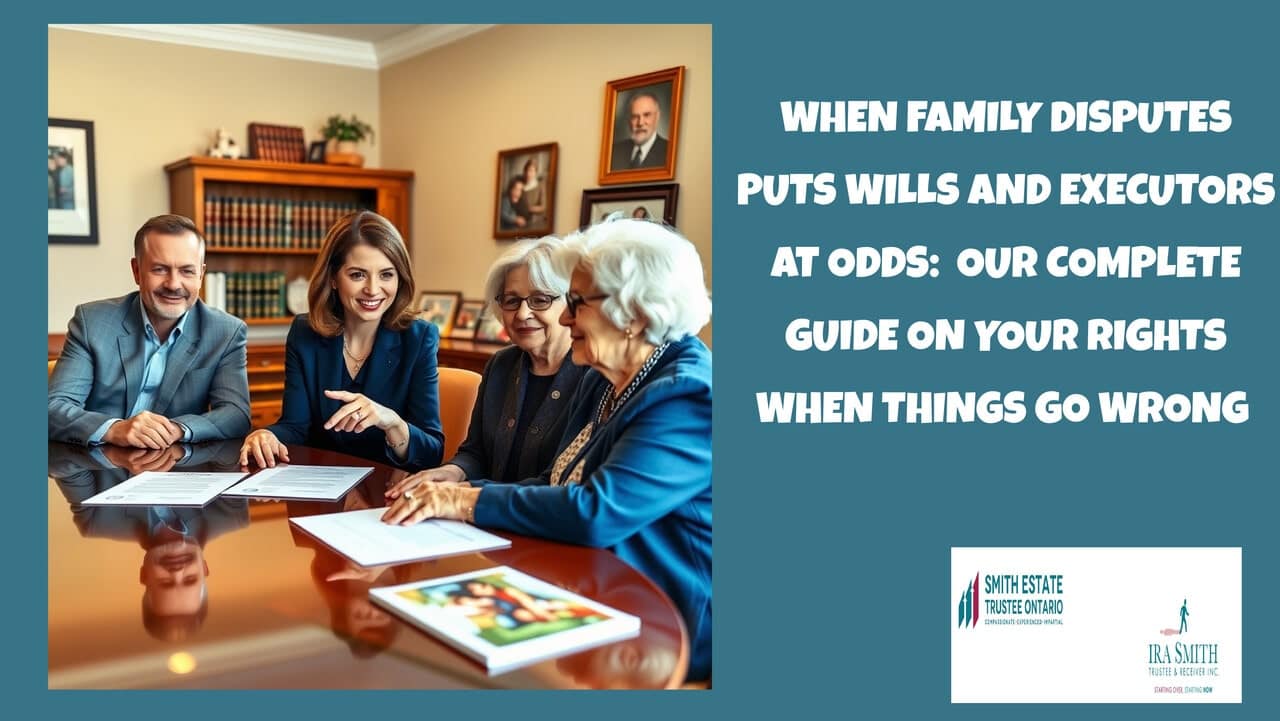

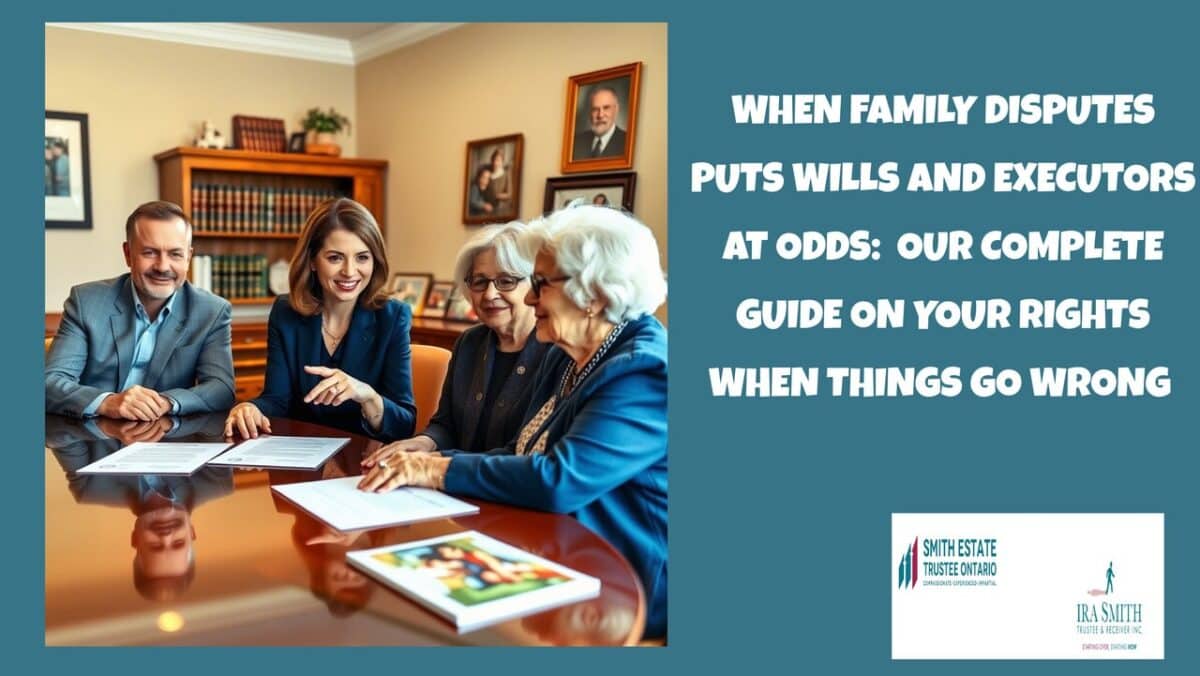
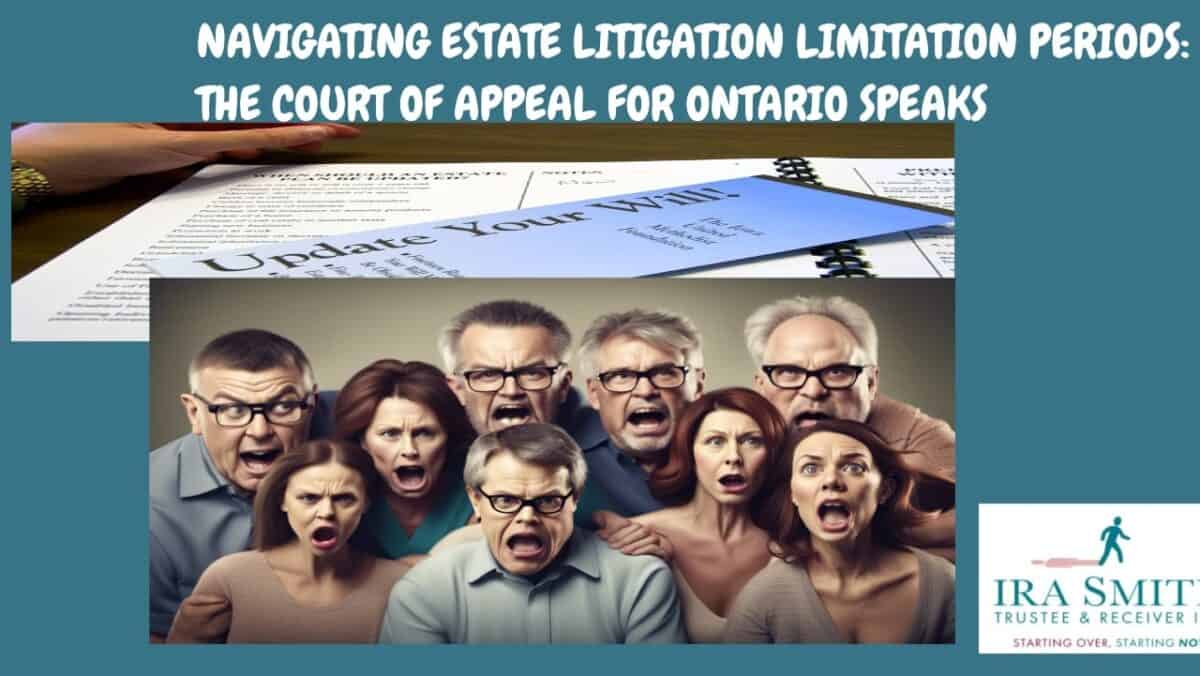
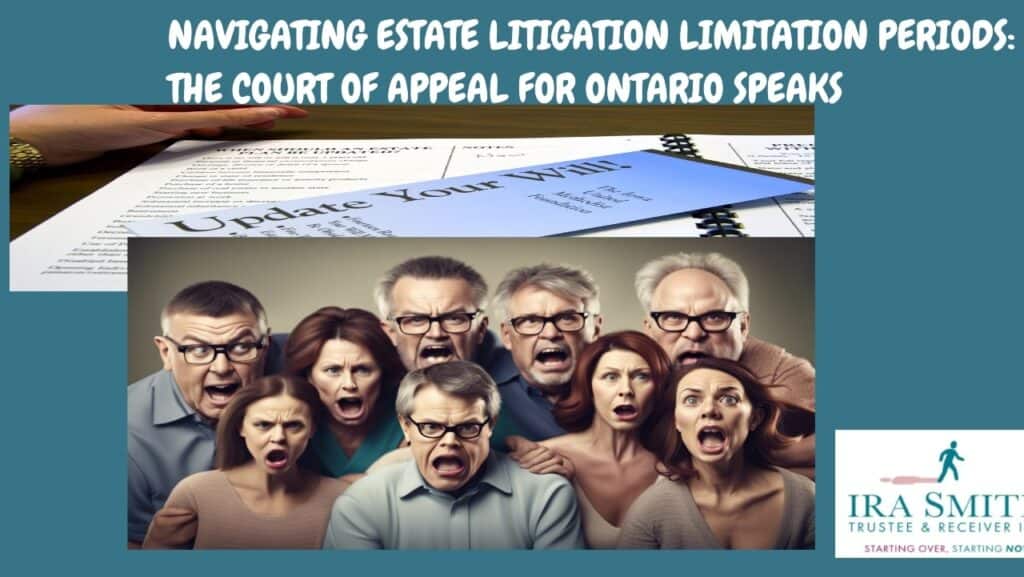
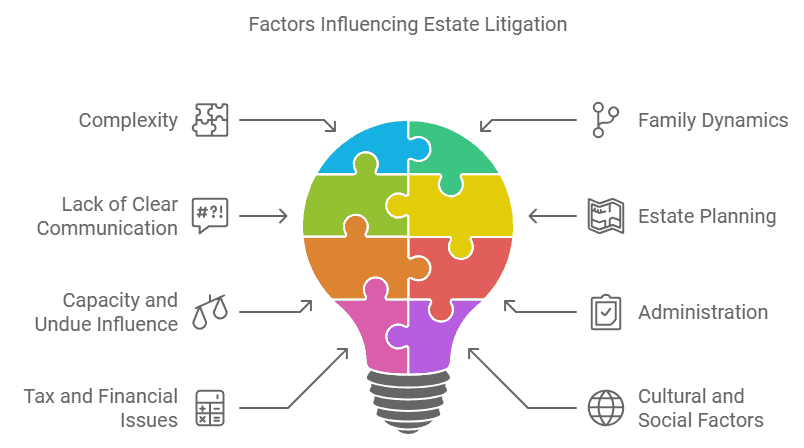

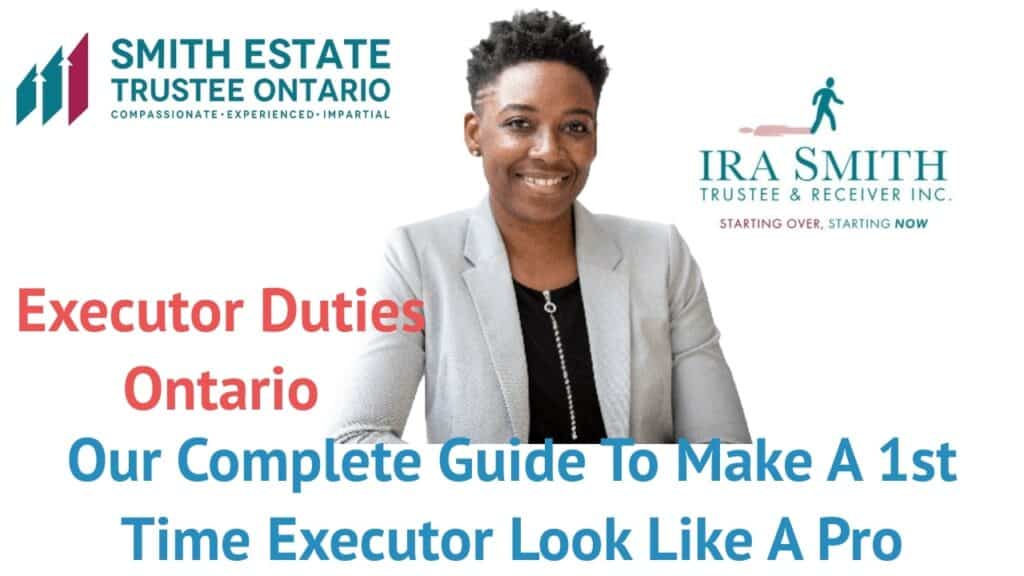

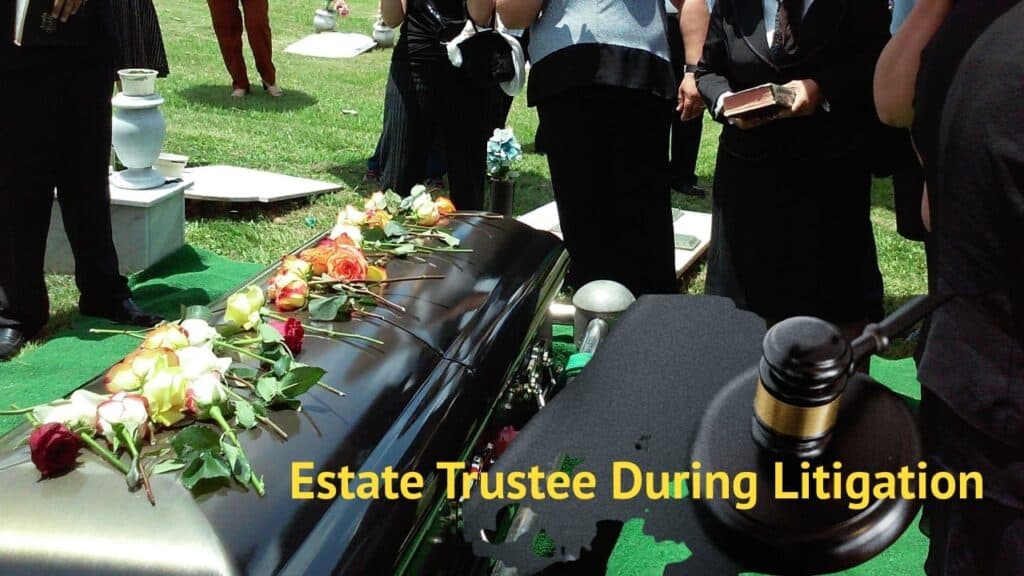 We hope that you and your family are safe, healthy and secure during this COVID-19 pandemic.
We hope that you and your family are safe, healthy and secure during this COVID-19 pandemic.